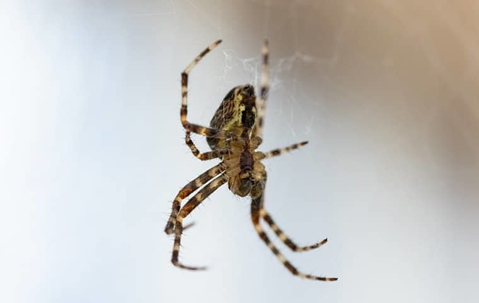Spiders have a profound relationship with the changing seasons, particularly in Richmond. This unique interaction significantly influences spider behavior and the necessity for spider control in Richmond. As temperatures fluctuate, so does spider activity. The warmer months typically see a surge in their population, leading to increased sightings within homes and gardens. Conversely, colder weather drives them to seek shelter indoors, escalating the need for control measures.
Understanding the seasonal dynamics is key so Richmond residents can implement timely and efficient spider control strategies. The insights in this article from Go-Forth Home Services will aid in maintaining a comfortable environment and contribute to a deeper appreciation of these fascinating arachnids and their role in the local ecosystem.
Seasonal Spider Behavior In Richmond
In Richmond, the behavior of common house spiders undergoes notable shifts with the changing seasons, presenting unique challenges for residents. During spring and summer, these spiders are more visible as they venture out in search of mates, leading to a noticeable increase in their presence both indoors and outdoors. As the weather warms, the abundance of insects, which serve as their primary food source, also increases, supporting their population growth.
However, as autumn approaches, common house spiders often migrate indoors to find warmth and shelter, preparing for the colder months. This seasonal migration helps us understand spider behavior; it is essential for effectively managing and controlling these common household arachnids.
Winter Strategies For Spider Control
As winter sets in, the quest for warmth and shelter drives spiders into our homes, often leading to a spike in spider infestations. Understanding how to prevent spiders during these colder months is important if you'd like to maintain a comfortable home. Here are some effective winter strategies for spider control:
- Seal Entry Points: Inspect your home for cracks and crevices, particularly around windows and doors. Sealing these entry points can significantly reduce the likelihood of spiders entering your house.
- Reduce Clutter: Spiders thrive in undisturbed areas. You can eliminate potential hiding spots by minimizing clutter, especially in garages, basements, and attics.
- Regular Cleaning: Regular dusting and vacuuming can remove spiders and their webs.
- Control Humidity: Spiders are attracted to moist environments. Using dehumidifiers in damp areas of your home can deter them.
- Natural Deterrents: Utilize natural deterrents like peppermint oil or vinegar in common spider areas.
These strategies can greatly aid in reducing the likelihood of a spider infestation during winter. By taking proactive steps, you learn how to prevent spiders and ensure a more comfortable living space during the colder months.
How Temperature And Humidity Impact Spider Infestations
Temperature and humidity play significant roles in the behavior and distribution of spiders, including those considered dangerous. Most spiders thrive in warm, humid environments. These conditions accelerate their metabolism, leading to increased activity and reproduction rates. Consequently, areas with higher temperatures and moisture levels often experience more frequent spider infestations. Conversely, lower temperatures and dry conditions can slow down spider activity and reduce their numbers.
Residents may notice seasonal variations in spider populations in regions where the climate naturally fluctuates. Understanding these environmental factors is important for effective control strategies, especially in areas prone to dangerous spiders. Monitoring and adjusting indoor temperature and humidity levels can create less hospitable conditions for these arachnids, potentially reducing the risk of infestations.
Adapting Control Methods To Seasonal Changes
Adapting pest control methods to accommodate seasonal changes is essential for effective spider management. At Go-Forth Home Services, a leading spider removal service, we emphasize the importance of this approach.
When spider activity peaks due to warmer temperatures and increased prey availability in the spring and summer months, proactive measures like perimeter treatments and habitat modification are a priority. Strategies may include clearing vegetation near the house and using barrier sprays to deter spiders.
As fall and winter approach, the focus shifts to fortifying the home against spiders seeking shelter. Steps may involve sealing cracks and employing indoor-safe pesticides if necessary. By tailoring our strategies to the seasons, Go-Forth Home Services ensures comprehensive protection year-round, keeping homes free from unwanted spider guests.

